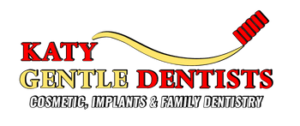
Your mouth is the gateway to your body. Poor oral health leads to widespread problems that affect your overall wellness.
But if that’s the case, then why are 42% of Americans not seeing the dentist as often as they should?
If you do not follow a teeth cleaning schedule, it’s time to start. From removing plaque to screening for severe medical conditions, a trip to your local dentist ensures your body stays healthy.
What are the benefits of regular teeth cleaning appointments? Let’s review.
Teeth Cleaning Removes Plaque and Bacteria
Regular tooth brushing is crucial for a healthy set of pearly whites. But a standard toothbrush cannot compare to the top-notch equipment Katy Family Dental uses. That’s why you need to schedule a cleaning twice a year.
During your visit, a dentist uses different tools to extract plaque, tartar, and bacteria from your mouth. Removing these substances reduces your risk of oral health concerns, such as:
- Periodontal (gum) disease
- Tooth decay
- Cavities
- Root canals
Scraping harmful bacteria from your chompers also lowers your risk of non-oral health concerns, including:
- Dementia
- Diabetes
- Heart disease
- Rheumatoid arthritis
If you do not schedule regular dental visits, plaque spreads from your teeth to other areas of your body. It can cause atherosclerosis (the hardening of the arteries). The plaque restricts blood flow and can cause a heart attack.
How Do Dentists Remove Bacteria From Teeth?
Dental professionals use small mirrors to guide them through the teeth cleaning process. The mirrors allow the specialists to reach areas you might miss with your toothbrush, such as between the teeth and around the gum line.
Once the tartar is eliminated, a hygienist brushes your pearly whites.
But this is no ordinary brushing. Hygienists use a high-powered electric toothbrush and gritty toothpaste to gently scrub your teeth. The process leaves your teeth well-polished.
Next, the hygienist flosses. The specialists floss hard-to-reach areas and remove plaque hiding in your gums. Once the flossing is complete, your hygienist will instruct you to rinse.
Finally, the dental specialist applies fluoride treatment. The foaming gel is inserted into a mouthpiece and placed over your teeth. Fluoride protects your mouth from bacteria, prevents decay, and helps your teeth stay strong and sturdy.
Dental Appointments Allow for Oral Cancer Screenings
In addition to cleaning your pearly whites, dentists also screen for oral cancer.
About 54,010 people are diagnosed with oral cancer every year. Keeping up with regular dental visits leads to early diagnosis and more effective cancer treatments.
What Is Oral Cancer?
When cells on the lips or mouth mutate their DNA, new cells follow the mutated version. The accumulation of abnormal cells forms a cancerous tumor.
Oral cancer can occur on the:
- Roof of the mouth
- Inner cheeks
- Lips
- Gums
- Tongue
- Under the tongue (floor of the mouth)
Oral cancer causes loose teeth, mouth pain, ear pain, and difficulty swallowing. It can create mouth sores that do not heal or white patches along the inside of the cheeks.
People who use tobacco, indulge in heavy alcohol use, have a weakened immune system, or experience frequent sun exposure have a high risk of oral cancer.
How Do Dentists Screen for Oral Cancer?
During your checkup, a dentist inspects the inside of your mouth. They wear gloves and gently feel the tissue of your cheeks to check for lumps and sores. The dentist will also gently press your throat and neck to inspect for any abnormal bumps.
Dental Visits Determine if You Require Advanced Cleanings
Most dental appointments start with oral x-rays. Dentists use the information from the x-rays to assess the health of your roots, teeth, and jawbone. The x-rays allow dentists to spot early signs of bone loss or infection.
If your dentist notices abnormalities in the x-rays, he or she may recommend more advanced cleaning treatments to ensure healthy and clean teeth.
Scaling
Dentists perform scaling when a patient has excessive plaque buildup (usually four millimeters or more) or early signs of gum disease. Regular checkups clean the surface of the tooth, but scaling eliminates tartar and plaque from below the gumline.
Scaling can be a little uncomfortable, so dentists may apply a local anesthetic to numb gum tissues. Depending on the severity of the plaque buildup, a dentist may perform scaling over the course of multiple visits.
Full Mouth Debridement
A full mouth debridement (FMD) is for patients with high tartar buildup and inflamed gums due to periodontitis.
The dentist numbs the infected areas with a local anesthetic. The dentist uses hand-held instruments or an ultrasonic device that blasts plaque and tartar out of the gums. The procedure ends with the dentist giving your teeth a final polish.
Periodontal Maintenance
Periodontal maintenance removes tartar and prevents periodontal disease.
It is administered to patients diagnosed with periodontal disease. They must receive periodontal maintenance every three to four months to ensure their gums remain clean and healthy.
Dentists Provide Expert Oral Health Tips
A trip to your dentist is a learning opportunity. It is the perfect time to ask questions and get recommendations to ensure exceptional tooth care between now and your next checkup.
Dentists can provide insights on:
- What toothpaste is best for your teeth
- Teeth-friendly foods and what to steer clear of
- How to floss better
- Ways to prevent teeth staining
- Teeth whitening methods
The more you know about oral hygiene, the better care you can put into keeping your teeth, tongue, and gums in tip-top shape.
Need a Teeth Cleaning? We Can Help
A professional tooth cleaning is necessary if you want to keep your pearly whites looking pearly white. Do your mouth a favor and stick to a teeth-cleaning schedule.
Is it time to schedule your next dental visit? We can help.
Katy Gentle Dentists provides top-notch teeth cleaning services for patients throughout Katy, Texas. Schedule an appointment with our team online. We will work with you to keep your smile looking bright and beautiful.

